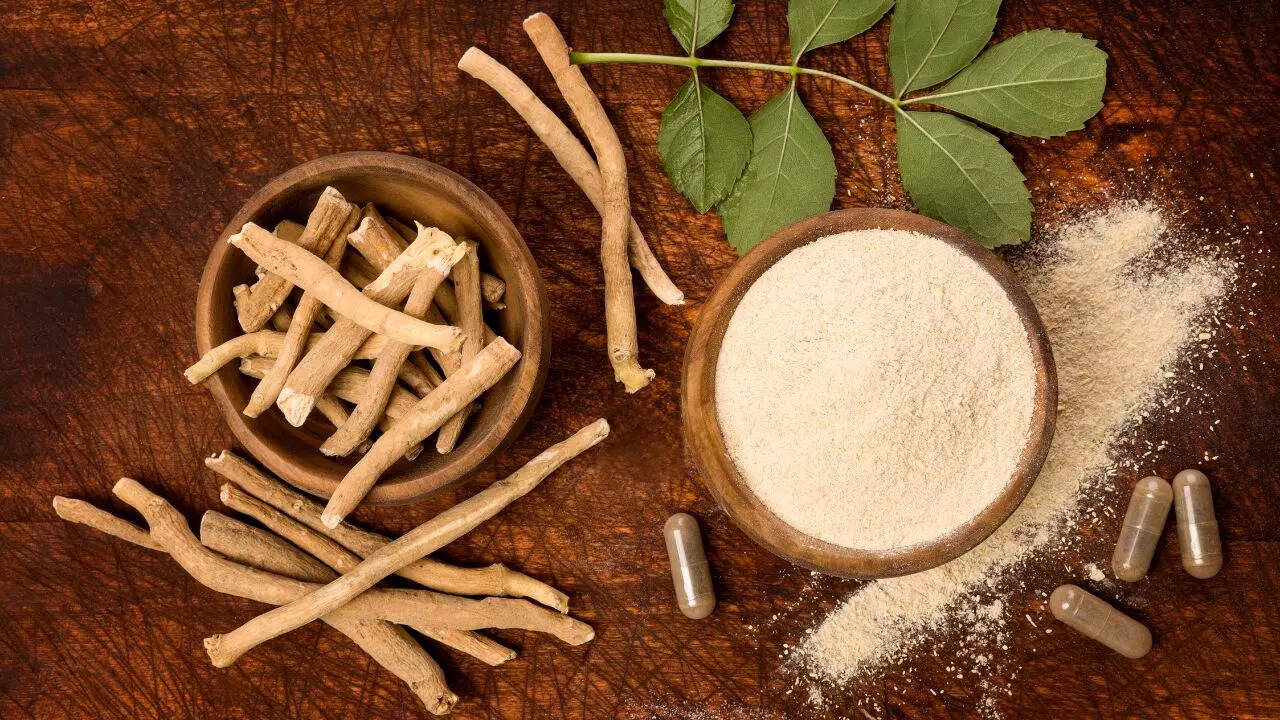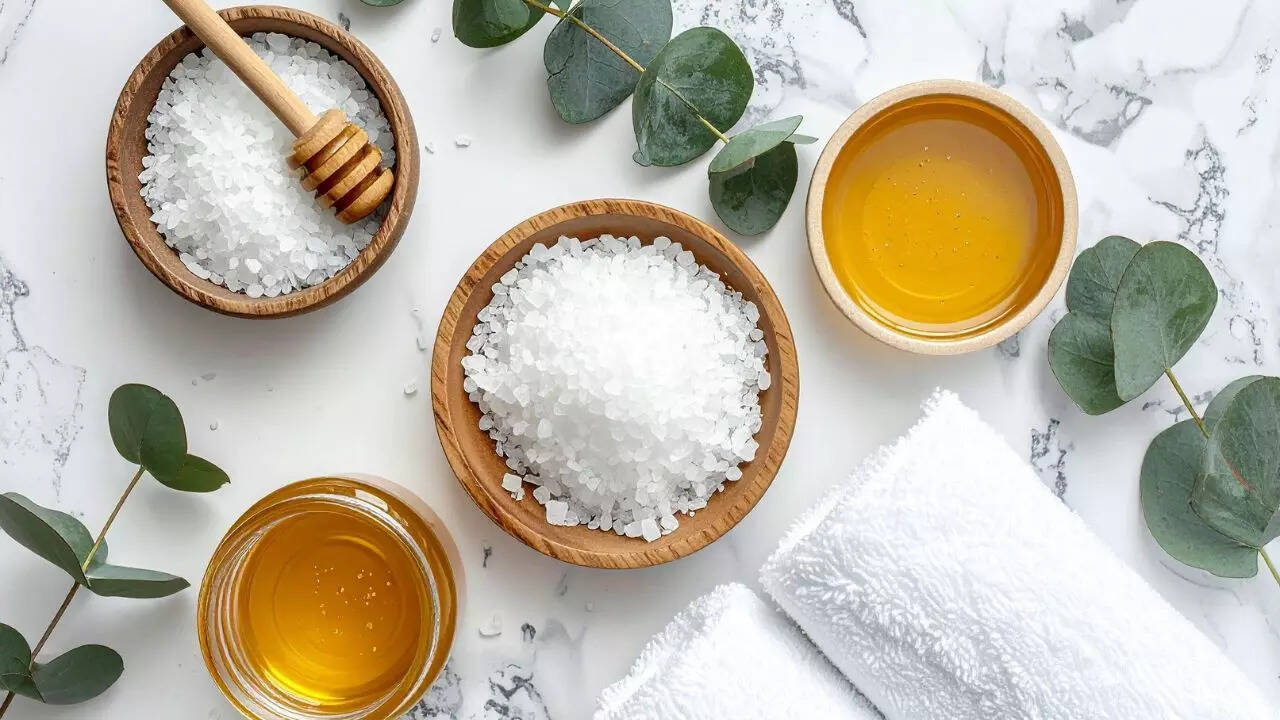ARTICLE AD BOX

A dry cough, also known as an unproductive cough, occurs when the throat becomes irritated but produces no mucus or phlegm. It often lingers after infections such as a cold or the flu.
It can also result from postnasal drip, asthma, acid reflux (GERD), or exposure to irritants like cigarette smoke and pollution. This type of cough can be uncomfortable, disrupt sleep, and strain the throat over time. While over-the-counter cough medicines may provide relief, many people prefer natural, time-tested home remedies that soothe the throat and calm the urge to cough. Simple ingredients like honey, turmeric, ginger, and peppermint can help reduce inflammation, moisturise the airways, and promote faster recovery.
Here are 10 effective home remedies for easing a dry cough naturally and restoring comfort.
How to stop a dry cough naturally: 10 proven home remedies
Honey
Honey is one of the most trusted natural remedies for soothing a dry cough. Its antibacterial and anti-inflammatory properties help coat the throat, reducing irritation and calming the urge to cough. Research published in the Archives of Pediatrics & Adolescent Medicine found that honey was more effective than dextromethorphan (a common cough suppressant) in easing nighttime coughs in children.
You can take a teaspoon of honey several times a day or mix it into warm tea or water. However, honey should never be given to children under one year old due to the risk of infant botulism.
Turmeric
Turmeric contains curcumin, a powerful compound with anti-inflammatory, antiviral, and antibacterial benefits. It is widely used in Ayurvedic medicine to treat respiratory issues such as bronchitis and asthma. A study published in Frontiers in Immunology discusses curcumin's potent anti-inflammatory and antioxidant properties, which contribute to its therapeutic effects in various health conditions, including respiratory issues.
To maximise absorption, turmeric should be consumed with a pinch of black pepper. Add one teaspoon of turmeric and a small amount of black pepper to warm milk, tea, or orange juice. Regular consumption can help ease throat irritation and reduce inflammation associated with a dry cough.
Ginger
Ginger is known for its immune-boosting, antibacterial, and anti-inflammatory properties. It helps soothe throat irritation and provides relief from coughing fits.
Fresh ginger tea is particularly effective, simply steep slices of peeled ginger root in hot water for a few minutes. Adding honey enhances both its taste and healing benefits. Alternatively, ginger can be taken as a supplement or chewed raw for quick relief.
Marshmallow root

Marshmallow root has been used for centuries to soothe throat discomfort and treat dry coughs. It contains mucilage, a gel-like substance that coats the throat and eases irritation.
It is often available in lozenges or herbal syrups and may also have mild antibacterial effects. Drinking marshmallow root tea two to three times a day can help calm persistent coughing.
Peppermint

Peppermint is rich in menthol, which acts as a natural decongestant and cough suppressant. It helps numb nerve endings in the throat, reducing the urge to cough while also easing congestion. Peppermint tea is a comforting way to enjoy these benefits, especially before bedtime.
Inhaling steam infused with peppermint essential oil or using it in a diffuser can also provide relief.
Masala chai tea
Masala chai, a spiced tea popular in India, combines several therapeutic ingredients such as cloves, cardamom, cinnamon, and black pepper, all of which have antioxidant and anti-inflammatory properties. Cloves act as natural expectorants, while cinnamon helps soothe throat inflammation. Drinking masala chai regularly can strengthen immunity and ease throat irritation caused by a dry cough.
Capsaicin
Capsaicin, the compound responsible for the heat in chilli peppers, may help reduce chronic coughing by desensitising the throat’s cough reflex. It can be consumed in capsule form or by adding a small amount of cayenne pepper to warm water to make a tea. However, this remedy is not suitable for children and should be used cautiously by those sensitive to spice.
Eucalyptus aromatherapy

Eucalyptus oil is widely used in aromatherapy for its decongestant and soothing properties.
It helps open up the airways and reduce throat irritation. Add a few drops of eucalyptus essential oil to hot water and inhale the steam, or use it in a diffuser before bedtime to ease nighttime coughing. The refreshing aroma can also improve sleep quality by clearing the sinuses.
Gargling with salt water
Gargling with warm salt water can ease throat discomfort and reduce coughing by killing bacteria and soothing inflammation. Dissolve one teaspoon of salt in a glass of warm water and gargle several times daily.
This remedy is particularly helpful in the morning or before bed to calm irritation caused by frequent coughing. However, young children should avoid this treatment as they might accidentally swallow the salt water.
Staying hydrated
Keeping your throat moist is key to relieving a dry cough. Drink plenty of water, herbal teas, and warm broths throughout the day. Hydration thins out mucus and reduces throat dryness, making it easier to manage coughing spells.
Avoid alcohol and caffeinated drinks as they can dehydrate the body.While most dry coughs can be managed at home, it’s important to seek medical attention if your cough lasts more than three weeks, produces blood, or is accompanied by symptoms such as shortness of breath, chest pain, or fever. Persistent coughing could indicate an underlying condition such as asthma, GERD, or a respiratory infection that requires treatment.Disclaimer: This article is for general informational purposes only and is not a substitute for professional medical advice, diagnosis, or treatment. Always seek the guidance of a qualified healthcare provider regarding any medical condition or lifestyle change.Also Read: Don’t ignore these 6 eye symptoms that signal high cholesterol

 2 hours ago
5
2 hours ago
5









 English (US) ·
English (US) ·